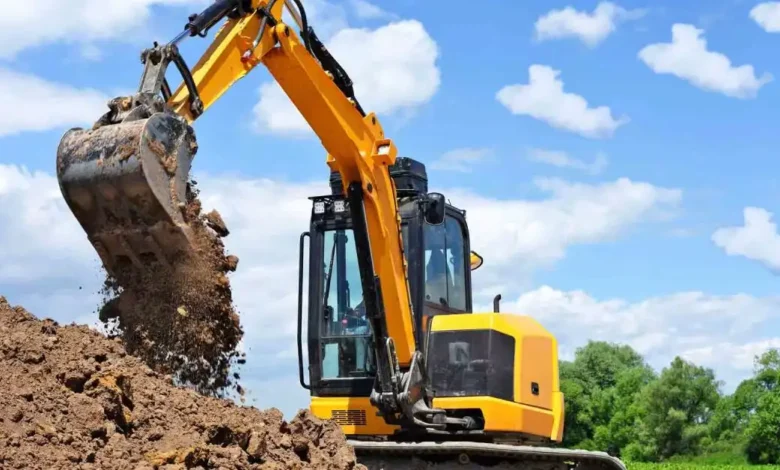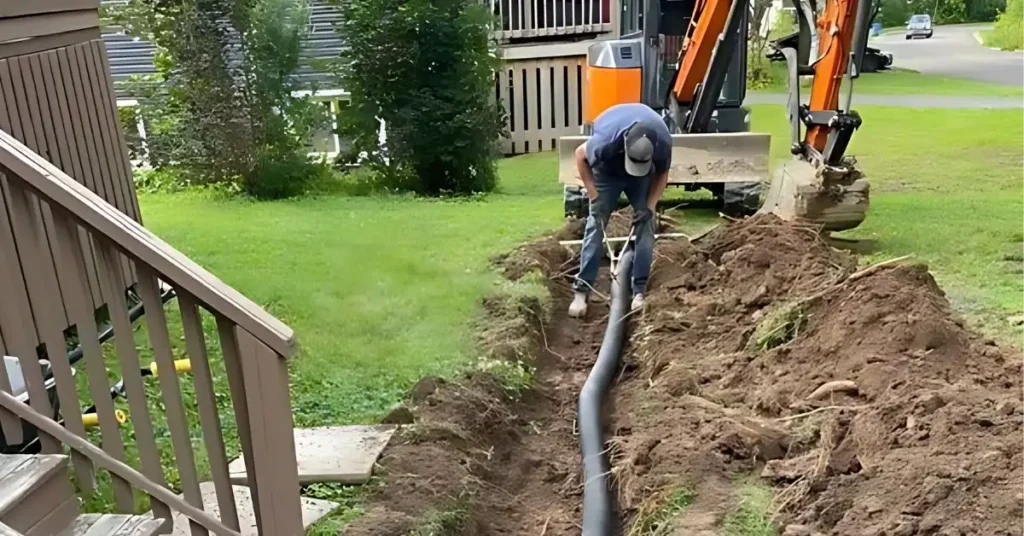Common Projects in Fredericton That Require Light Excavation Services

Whether you’re looking to add new landscaping features, build a small accessory structure, or install utilities on your residential property, light excavation is often a necessary part of the process. In Fredericton, many homeowners and contractors rely on professionals to complete tasks that involve digging shallow trenches or moving limited soils and materials. Some typical light excavation projects in the region include landscaping installations, preparing foundations, constructing driveways and walkways, putting in retaining walls, and adding outdoor water elements. Being able to hire an experienced light excavation company can help ensure these common backyard and landscape enhancements are completed efficiently and to code standards.
Conducting Light Excavation Projects Safely and Effectively
Light excavation is generally done with smaller equipment than heavy excavation projects and does not involve moving large volumes of earth. Backhoes, mini-excavators, trenchers, and compact utility loaders are common pieces of machinery used for light excavation tasks. Light excavation contractor in Fredericton must have the proper safety training and certifications along with insurance for working with powered equipment near homes and structures. Proper planning is also important to minimize disruption and damage during shallow digging tasks.
ALSO READ ABOUT HALF OF A 1990S-2000S ROCK DUO WITH SIX GRAMMYS
Residential Landscaping
Residential landscaping projects often require some degree of light excavation to prepare garden beds and yard spaces. Garden beds need to have edges delineated and soil graded to proper depths and contours for plantings. This may involve digging shallow trenches up to 24 inches deep around existing plants or for new beds. Small areas also need to be excavated for installations like decorative rock gardens, water features, seating areas, and pathways. Contractors will use compact utility loaders, trenchers, or mini-excavators to dig and move topsoil efficiently for landscaping makeovers. Proper planning of garden design and soil preparation helps landscaping projects integrate smoothly into existing yards.
Foundation Preparation for Sheds and Garages
When homeowners want to build storage sheds or detached garages in their backyard, light excavation is typically done to prepare foundation pads. Contractors will use a skid-steer loader or backhoe to dig trenches no more than 3 feet deep on average to lay gravel and concrete foundation pads. For poles or sonotube pier foundations on sheds up to 10×12 feet, shallow post holes around 2 feet wide and deep need to be dug. Proper compaction and drainage are important considerations during this stage. Well-planned foundations are critical for the structural integrity and long-term stability of outbuildings subject to weather and stresses from storage.
Driveway and Walkway Installation
Many residential properties in Fredericton have gravel, paver, or poured concrete driveways and walkways connecting the street to homes and structures. Installing new driveways or walkways usually requires some excavation to remove existing gravel or grass and dig shallow trenches. Driveway trenches are commonly just 6-10 inches deep on average to lay gravel bases or pour concrete properly. For paved walkways, contractors may use mini-excavators or trenchers to dig narrow trench depths of 8-12 inches along leveled grade lines. Compacted gravel bases help ensure even settling and drainage beneath finished paved surfaces. Proper drainage considerations during installation helps prevent issues like pooling, erosion, or cracking over time.
Retaining Wall Construction and Repair
Retaining walls are often needed in hilly areas and yards with grade changes to provide structural support and prevent erosion. Constructing new retaining walls or repairing existing ones generally requires shallow trench excavation between 1-3 feet deep on average for wall footings and drainage. Contractors use small backhoes, mini-excavators, or trenchers for this type of light excavation to prepare level footing surfaces at consistent depths. Proper compaction and a well-drained gravel base beneath footings are vital for maintaining a retaining wall’s long-term structural integrity. Installing geogrid or poured concrete wall systems also typically requires shallow excavation of narrow trenches along the wall line.
Installing Outdoor Water Features and Drainage Systems
Adding attractive water features like ponds or fountains to yards often requires some excavation work. Contractors usually dig shallow trenches and basins no deeper than 3-4 feet on average with compact equipment like mini-excavators or skid steers. Properly installing invisible dog fence systems also involves minor trenching 4-6 inches deep around property perimeters. French drains and other subsurface drainage lines necessitate narrow trenches about 2 feet deep to bury perforated drainage pipes and surround with gravel to efficiently redirect runoff. All outdoor water installations need careful planning and compaction to mitigate issues from ground saturation or erosion over the long term.
Pool and Hot Tub Installation
Installing in-ground swimming pools involves deeper excavation than many other types of light excavation projects. Contractors use backhoes, excavators, or dredging equipment capable of digging foundations 5-8 feet deep on average for pools shaped to specifications. Hot tubs require slightly shallower trenches at 3-4 feet deep. Excavated soil must be removed safely and holes properly compacted to provide stable, level surfaces. Frames and pre-formed swimming pool bases are then carefully set into place. Underground plumbing, filtration, and electrical systems may also need shallow trenches dug within equipment pads and perimeter walls during pool construction. Proper waterproofing protects against leaks or saturation throughout the finished project.
Trenching for Utility Lines and Irrigation Systems

Residential properties occasionally require minor trenching to install or upgrade buried utility lines for services like electricity, cable, gas, or water supply. Trenches for simple utility line installation are typically only 1-2 feet deep on average. Lawn irrigation systems also involve shallow network trenches approximately 8-12 inches deep to lay water supply pipes connected to an outdoor faucet or pump. Contractors use mini-excavators or trenchers to efficiently dig narrow trenches along planned routes while avoiding buried lines. Prompt compaction and proper bedding materials ensure stability without collapsing or soil settling issues over time.
Patio and Deck Installation
Constructing new outdoor patios and wooden decks usually requires minor excavation to prepare stable, level surfaces. Patios are commonly laid directly on the existing graded ground with just base preparation like removal of grass or weeds. Porches or elevated wood decks, however, may need shallow trenches 6-12 inches deep on average dug around perimeter footings depending on the deck design specifications. Small backhoes, mini-excavators or trenchers easily accomplish this type of light excavation work. Compacted gravel bases set at consistent depths beneath footings provide durable foundations ensuring decks remain safely stable and level during regular use over many years.
Erosion Control and Soil Grading Projects
Projects aimed at controlling soil erosion or grading yards often necessitate minor soil moving with compact equipment. Installing measures like rain gardens or bioswales to redirect surface runoff may entail shallow trenches 2-3 feet deep on average dug along planned drainage routes. Re-shaping or adding topsoil to eroded areas usually only requires removal or addition of the top 6-12 inches of soil. Sloped yard spaces may also need shallow grading of just a few inches cut or filled to re-shape contours and improve drainage. Machines like compact utility loaders efficiently move limited volumes of soil in a controlled manner for these low-impact landscaping tasks.
Summary
Light excavation commonly involves digging or soil movement no deeper than 4 feet on average for residential construction and landscaping projects in and around homes in Fredericton. Proper planning, safety practices, and competent operation of machinery ensure these minor excavation tasks proceed smoothly while avoiding issues. Compaction and stable foundations are especially important considerations that help ensure structures, installations and yards remain functional with minimal upkeep over the long term. Following best practices, light excavation work benefits many types of improvements enhancing both usability and appearances of property spaces.


